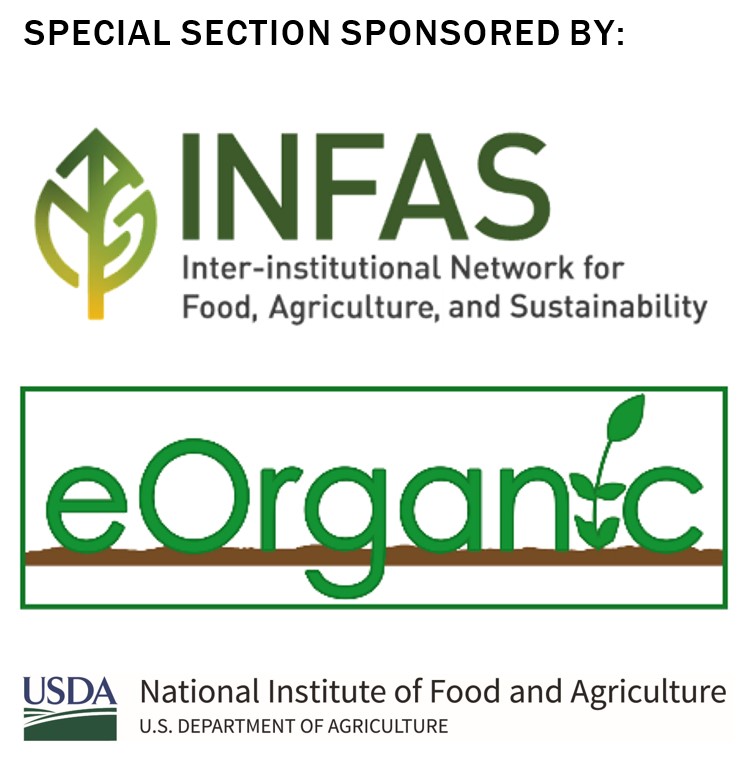Growing in relation with the land
Experiential learning of Root and Regenerate Urban Farms
DOI:
https://doi.org/10.5304/jafscd.2023.131.002
Keywords:
regenerative farming, urban agriculture, small plot intensive farming, alternative food network, food system resilience, land sharing, experiential learning, activist scholarship, SPIN farmingAbstract
The food landscape of Calgary, Canada, is sown with an abundance of polycultures. Alongside place-specific Indigenous foodways are food rescue, banking, and hamper programs, food studies scholars, a City of Calgary food resilience plan, and a growing number of alternative food network producers. Within the local alternative food network, there has been a boom in advancing indoor growing for our colder climate, including container, aquaponic, vertical hydroponic, and greenhouse growing. Situated as an agrarian ethnographer and an urban regenerative farmer, we seek to highlight the viability of agricultural techniques that are in relation with the land to grow more socially and ecologically sustainable food and farm systems in and around Calgary. From this position, we formed a collaboration between the University of Calgary, Root and Regenerate Urban Farms, and the Young Agrarians to document the cultivation process for a production urban farm. Over the course of one growing season—May to September, 2021—we harvested approximately 7,000 lbs (3,175 kg) of produce across nine urban spaces totaling 0.26 acres. The 48 vegetable varieties were distributed to 35 community supported agriculture shareholders, weekly farmers market customers, restaurant chefs, and members of the YYC Growers and Distributors cooperative. Moreover, we donated 765 lbs (347 kg) of surplus produce to the Calgary Community Fridge, Calgary Food Bank, and the Alex Community Food Centre, which work to mitigate food insecurity. Through a reflexive practitioner approach, our reflective essay discusses the benefits and limitations of Small Plot Intensive Farming methods and urban land-sharing strategies, as well as the viability of land-based urban agriculture in a rapidly changing socio-ecological climate. Our paper also demonstrates the potential for transcending siloed approaches to knowledge-making vis-à-vis experiential learning partnerships between graduate student researchers, farmers, and agricultural organizations.
Metrics

Downloads
Published
How to Cite
Issue
Section
License
Copyright (c) 2023 Chelsea Rozanski, Michael Gavin

This work is licensed under a Creative Commons Attribution 4.0 International License.
The copyright to all content published in JAFSCD belongs to the author(s). It is licensed as CC BY 4.0. This license determines how you may reprint, copy, distribute, or otherwise share JAFSCD content.











